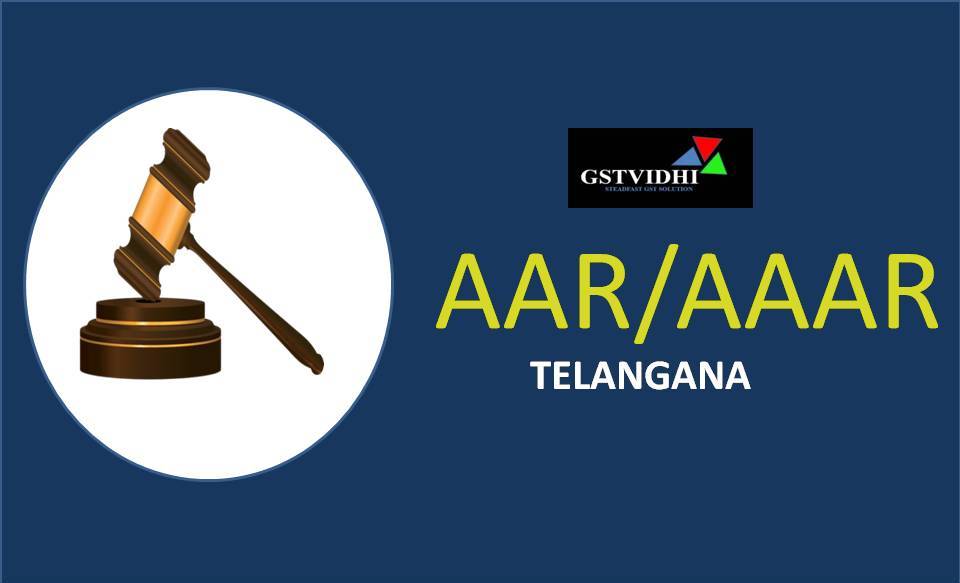
GST On
Marketing/Recruitment/Referral Services to Foreign Institution and Universities
By Yogesh Verma
(CS/LLB) / 2
min read / GST Article
Authority for Advance Ruling:
Telangana State Authority for Advance Ruling (TSAAR)
Ruling No.:
TSAAR Order No.09/2024
Ruling Date:
09.05.2024
Name of Applicant:
M/s. Center for International Admission and Visas (CIAV)
Summary of the Advance Ruling:
The applicant, CIAV, is engaged in providing
marketing, recruitment, and referral services to foreign universities and
colleges. The questions posed by the applicant pertained to whether their
services would be classified as intermediary services under Section 2(13) of
the IGST Act or considered as independent services, and whether such services
would qualify as "export of services" and thus not attract GST. The
ruling clarified that the services provided are independent of the intermediary
category and qualify as export of services under Section 2(6) of the IGST Act,
provided payments are received in foreign currency.
Facts of the Case:
1. Applicant’s
Business: CIAV refers aspiring
students to foreign universities/colleges. Their service includes preparing the
students' case and submitting it to the university based on the student's
merits and the university's requirements.
2. Contractual
Relationship: The applicant has a
direct contractual relationship with the foreign universities, not with the
students. They receive referral income based on the number of successful
admissions.
3. Issue: The applicant sought clarity on whether their
services should be considered intermediary services or independent export of
services and whether such services are liable for GST.
Questions Raised by the Applicant:
1. Whether CIAV’s services as a
Marketing/Recruitment/Referral Consultant to foreign universities qualify as
intermediary services under Section 2(13) of the IGST Act, 2017, or are they
independent services?
2. Whether these services qualify as export of
services under Section 2(6) of the IGST Act, 2017, and thus are exempt from
GST?
Submission by Applicant:
1. The applicant argued that they provide
marketing/recruitment services directly to foreign universities, without any
contractual relationship with the students.
2. CIAV receives income from the universities for
their referral services and does not receive any fees from students. Hence,
they should not be classified as an intermediary.
Relevant Sections:
·
Section 2(13) of IGST
Act, 2017: Defines intermediary services.
·
Section 2(6) of IGST
Act, 2017: Defines export of services.
·
Section 13(2) of IGST
Act, 2017: Determines the place of supply for services.
Findings by the Authority:
1. Not an
Intermediary: The applicant is not
involved in facilitating services between two parties. Instead, CIAV directly
provides marketing and recruitment services to foreign universities. Since
there are only two parties (CIAV and the universities), the applicant does not
qualify as an intermediary.
2. Export
of Services: The services rendered
by CIAV to foreign universities qualify as "export of services" under
Section 2(6) of the IGST Act, provided payments are received in convertible
foreign exchange. Since the place of supply is outside India, the service is
exempt from GST.
Ruling and Decision:
1. Intermediary Services: CIAV’s services do not
qualify as intermediary services under Section 2(13) of the IGST Act. CIAV
operates on a principal-to-principal basis with the foreign universities,
offering marketing and referral services.
2. Export of Services: The activity qualifies as
"export of services" under Section 2(6) of the IGST Act, provided
that the payments are received in convertible foreign exchange. Therefore, GST
is not applicable on these services.
Conclusion: The Telangana Authority for Advance Ruling
held that CIAV’s services of marketing, recruitment, and referral for foreign
universities are not intermediary services but independent services. These
services qualify as export of services, exempting them from GST, provided
payments are made in foreign currency.
Disclaimer: All the Information is based on the notification, circular and order issued by the Govt. authority and judgement delivered by the court or the authority information is strictly for educational purposes and on the basis of our best understanding of laws & not binding on anyone.
Click here